From Byzantium to Bell Pond
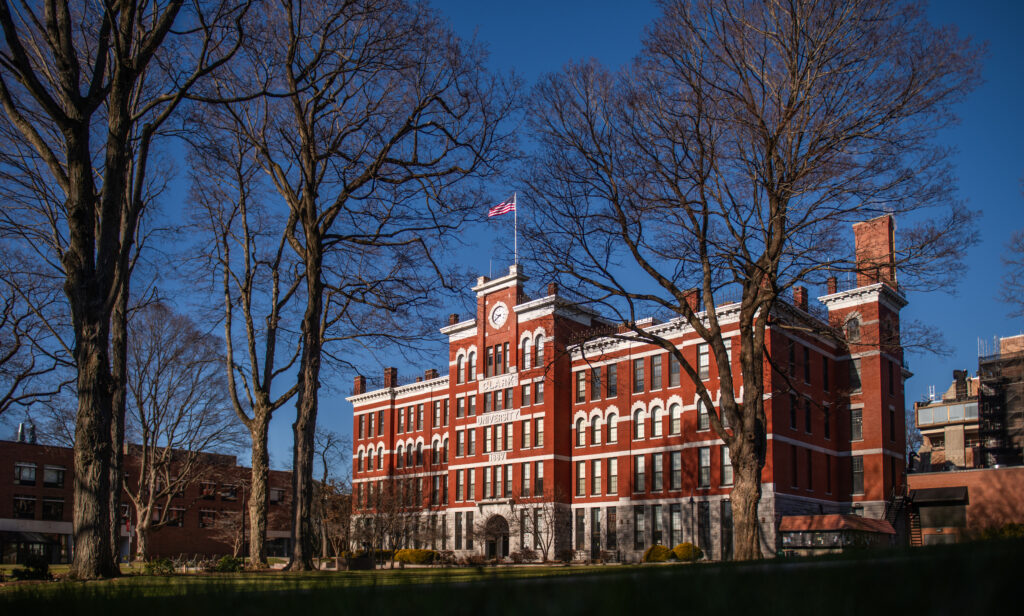
For almost 40 years, the Alice Coonley Higgins Institute for Arts and Humanities has supported faculty in their research and creative works, providing opportunities for personal career advancement while enhancing the national profile of the arts and humanities at Clark.
In December, Institute Director Matt Malsky announced the recipients of the 2024 seed, individual, and linking grants, comprising faculty from a range of disciplines, including the arts, languages, interactive media design, English, and land history.
Seed grant
This year, the Higgins Institute introduced the Seed Grant, designed to support a new research initiative or creative project. The inaugural Seed Grant was awarded to Professor Mindy Marchand, Ph.D. ’20, visiting assistant professor of history, to support “Women of Clark,” a digital oral history project on which Marchand is collaborating with Catherine Stebbins, digital research librarian at Goddard Library.
The seed grant will support the development of a prototype for creating fully indexed, searchable oral history repositories and accompanying digital exhibits. Marchand will identify 10 to 12 women who, like Alice Coonley Higgins, contributed to Clark University’s success during the 20th century.
Individual grants
The Higgins Institute also awarded five major individual grants to Clark faculty. These recipients are:
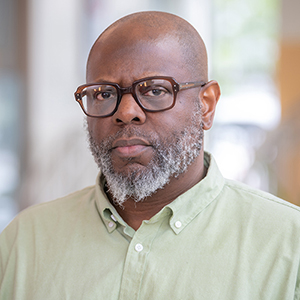
James Maurelle, assistant professor, Visual and Performing Arts (studio art)
With this grant, Maurelle plans to investigate the burial ritual via sculpture and sound in urban and isolated rural landscapes. “This project began with an inquiry into what drives the human animal to bury things: buried treasure, secrets, objects, love,” Maurelle wrote in his project proposal.
Maurelle’s project, sculptural and sound-based, will involve an inverted cairn that will be buried completely in a seven-foot excavated space, while an auditory device will record the real-time state of the work. As part of the work, Maurelle will conduct research at regional and international historic sites.
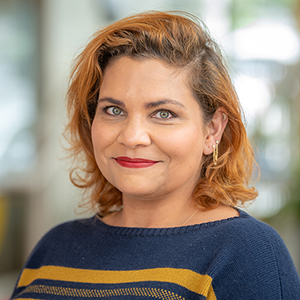
Naomi Pitamber, assistant professor, Visual and Performing Arts (art history)
This grant will support the publication of color reproductions in Pitamber’s book project, “Byzantium and the Landscapes of Loss: Recreating Constantinople in the Laskarid and Palaiologan Eras,” currently in production with Cambridge University Press.
Pitamber’s first monograph, the book presents the art, architecture, and archaeological material culture produced at the periphery of the Byzantine Empire under the Laskarid dynasty through the lens of exile, displacement, and migration. “Prior narratives of this period have been preoccupied with the metropolitan center of Constantinople and written sources,” Pitamber wrote in her project proposal. Her book addresses the “neglected and overlooked Laskarid periphery that informs the Constantinopolitan center in the later 13th and early 14th centuries.”
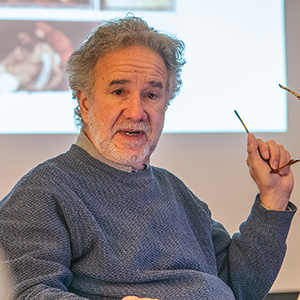
Stephen DiRado, professor of practice, Visual and Performing Arts (studio art)
This grant will support the publication of two photo collections. “Stephen DiRado: Volume I”will include DiRado’s Bell Pond series; “Volume II” will include his Mall Series. The two-volume monograph will be published by TBW Books.
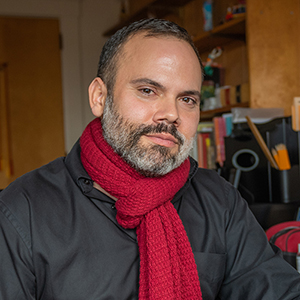
Juan Pablo Rivera, associate professor, Language, Literature, and Culture
This Higgins grant will support the publication of Rivera’s next scholarly book, tentatively titled “Futuro pais imaginario: Violencia y esperanza en narrativa puertorriqueiia del siglo XXI [Future Imaginary Country: Violence and Hope in Puerto Rican 21st Century Narratives].”
In the book, Rivera argues that the idea of “the future” has been politically damaging to Puerto Rico because it distracts from the need to fix the economic, cultural, and environmental problems that the island has faced now for many decades, and calls for a critique of “crononormativity,” the idea that all peoples and nations have a similar relation to time and development.
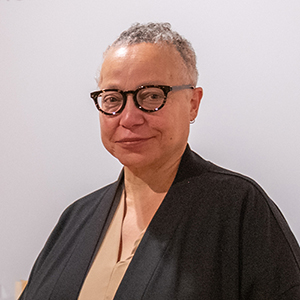
Toby Sisson, associate professor, Visual and Performing Arts (studio art)
This grant will support the exhibition mounting and framing of new artwork Sisson began creating during a residency in the Mississippi Delta and in a practitioner fellowship from Brown University’s Center for the Study of Race and Ethnicity in America.
Tentatively titled “An American Journey” and encompassing mixed media collages made from photographs, drawings, prints, maps, and various ephemera, “The series reflects my creative research interest in themes at the intersection of race and history with a new focus on my own family’s role in the Great Migration — the movement of 6 million Black people from the south between 1910 and 1970,” Sisson stated in her project proposal.
Linking grants
The Higgins Institute also awarded two Linking Grants, designed to support pedagogical innovations and interdisciplinary programming. The recipients are:
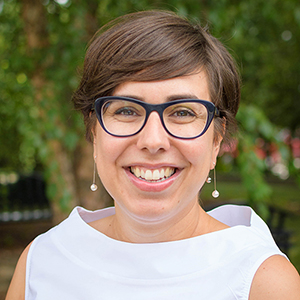
Dolores Juan-Moreno, associate teaching professor, Language, Literature, and Culture
This grant will support the third International Conference on Hispanic Women Filmmakers (CIMCiH), which will be held at Clark this year. The event, held biennially, “provides a rare opportunity to engage with Hispanic cinema, especially films crafted by women who choose Spanish as their primary language of expression,” Moreno wrote in her project proposal. The 2025 conference, “Dissidences,” will spotlight those who challenge conventions and carve paths outside mainstream narratives. The event also serves as a hands-on educational experience for Clark students, who play a crucial role in its organization and planning.
Eduard Arriaga-Arango, associate professor and chair, Language, Literature, and Culture; Betsy Huang, professor of English; Terrasa Ulm, professor of practice, Becker School of Design & Technology; and Laura Robinson, university librarian
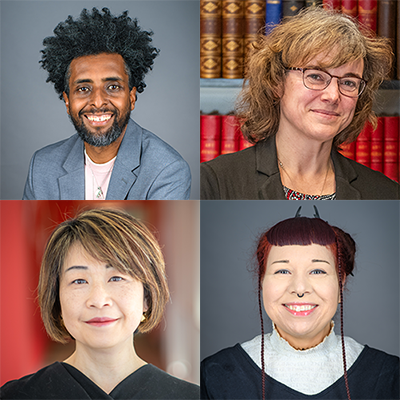
This linking grant will support the development of a Critical AI Community Data Lab at Clark, which would facilitate research, co-creation, and collaboration between academic and non-academic communities to examine the uses and abuses of data-driven technologies.
The Critical AI Community Data Lab will be developed to serve as a sustained collaborative space for academic and non-academic communities to produce knowledge, learn from one another, and develop counter-visions, counter-practices, and more equitable tools and methodologies to resist the pervasiveness and coerciveness of big tech AI tools, according to the project proposal.
The grant will fund a two-day public pop-up event to launch the lab. The event, which will include the participation of five diverse community organizations, will feature activities, workshops, and galleries of creative visions and installations.


